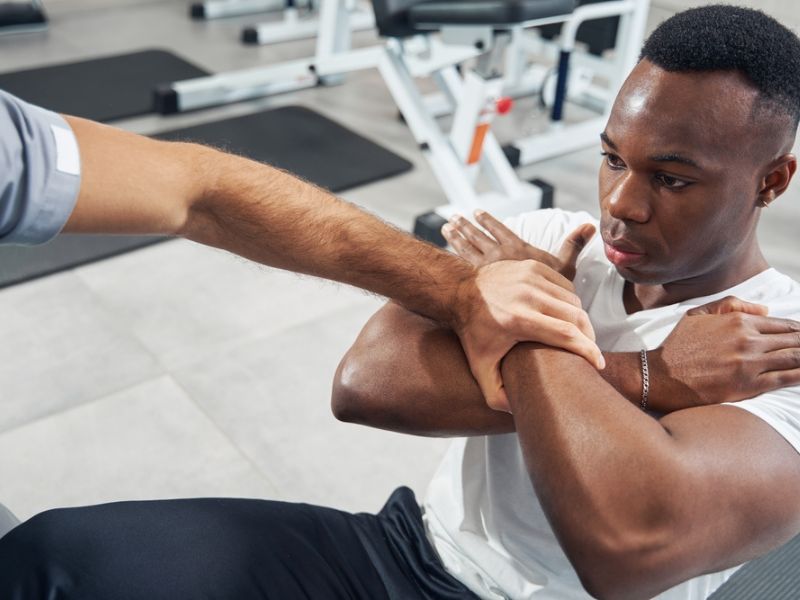Muscle testing may intrigue fitness enthusiasts, but its connection to fitness or muscles is minimal. Instead, it examines a muscle to identify potential issues with other body parts. For example, a problem with the calf muscle may indicate an internal organ issue. While muscle testing does not provide a specific diagnosis, proponents believe it can help identify areas of health that require attention. However, it’s important to note that muscle testing lacks scientific support and is not commonly practiced by doctors. Nevertheless, there is increasing interest in muscle testing, and it’s natural to have questions about it, including whether you can perform it at home. Understanding how muscle testing works is essential, but if you suspect any health concerns, it is still crucial to consult a medical professional.

Image Credit: Shutterstock/inge-klikt
Muscle Testing: What Is It?
Muscle testing, or applied kinesiology, originated from George J. Goodheart, Jr., a chiropractor. It claims to treat various concerns and involves joint manipulation, myofascial therapies, acupuncture, and more. However, limited research supports its effectiveness, and some studies have found it unreliable, such as in diagnosing allergies.
Muscle Testing: How Does It Work?
Muscle testing, often discussed by chiropractors, nutritionists, and therapists, lacks standardization and reliability in the medical community. It has limited usability and questionable efficacy for health diagnosis. Manual muscle testing assesses strength and function through manual pressure and resistance. However, its effectiveness in determining nutritional needs or mental/emotional stress is unsupported by research.

Image Credit: Shutterstock/Yakobchuk Viacheslav
Is It Possible To Muscle Test Yourself?
Trying muscle testing at home is not recommended as it lacks clear research supporting standardization and protocol. Getting checked by a licensed medical provider is the best approach for addressing muscle weakness or undiagnosed health conditions. While it’s unlikely to cause harm, consulting a doctor is advised if you’re concerned about weak muscles or underlying health issues. Seeking proper care, such as physical therapy or seeing a neurologist, can help address muscle weakness and restore function.